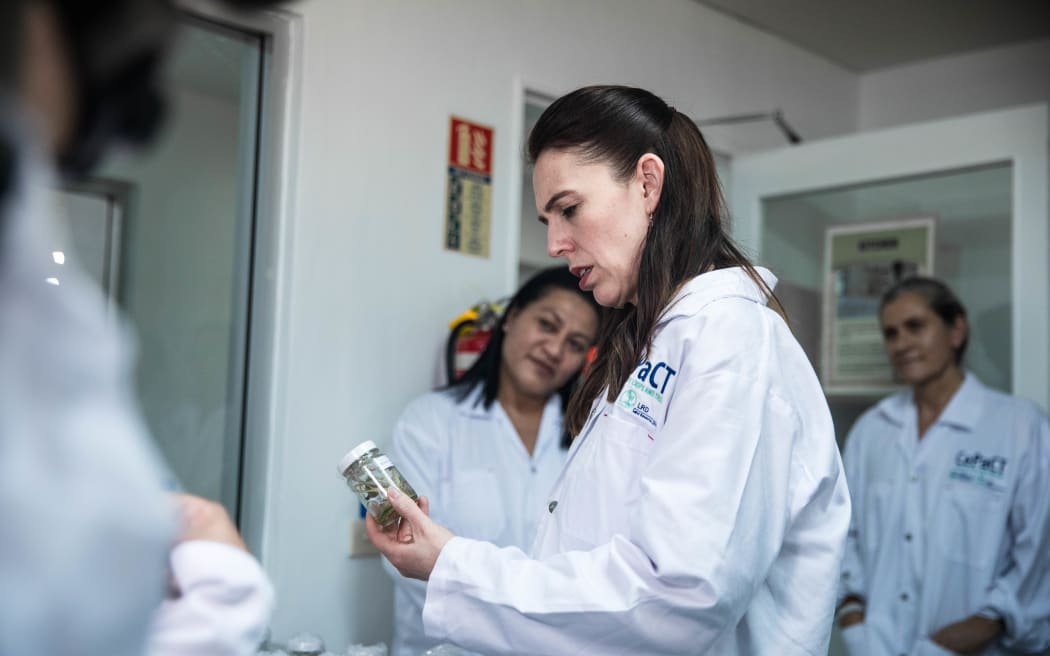Climate funding to support Pacific seed crops
Tuesday 12 July 2022 | Written by RNZ | Published in New Zealand, Regional

CePaCT seed and plant genebank in Suva Photo: RNZ / Samuel Rillstone
The government is putting $10 million of its $1.3 billion climate aid fund towards conserving Pacific crop seeds and researching climate-resilient varieties.
Prime Minister Jacinda Ardern and Foreign Affairs Minister Nanaia Mahuta made the announcement at the Pacific Islands Forum in Suva, Fiji today.
Half the funding would, over five years, go to the Centre for Pacific Crops and Trees (CePaCT) which has worked to conserve 17 Pacific crops including yam, coconut and 70 percent of the world's taro varieties since 1998.
The other $5m would be provided to the Global Crop Diversity Trust, the funding mechanism for the world's gene banks, which would ensure ongoing funding to the centre from trust income in perpetuity.
Ardern said the money would help the centre, which is based in Fiji, do its work to ensure the long-term food security of the region.

"The investment will help the centre to scale up its work, which also includes conducting research into developing new climate resilient varieties of crops that are resistant to drought, pests and diseases," she said.
"Another important function of the centre is the distribution of seeds and plant materials to farmers across the region, and part of this additional funding will also be utilised to improve those distribution systems."
New Zealand's Minister of Climate Change James Shaw said a warmer planet would make it harder to grow many of the crops Pacific families relied on, with warmer, wetter or drier conditions also leading to more pests and diseases.
"We can still limit the impacts of climate change on food crops by doing everything we can to limit warming," he said.
"But we also need to provide communities with the tools they need to prepare for the future and for the climate impacts we know we cannot avoid, which is what this investment will support."














































